Summer’s just about here—sunshine, warmth, frolicking, etc. It’s a season that awakens the sentimental nostalgic in me, longing for those hot childhood days spent playing pickup football, climbing the jungle gym, helping Great Uncle Jerry bury his Victorian-era erotica collection in the field so “the government can’t get to it.”
Good times, good times. But when I look back on those childhood summers, my favorite memories aren’t all those bright days outdoors. Some of the best were when the rain came in and the day was gray and dreary, and so with nothing else to do I sat at home and read. I loved those rainy days spent reading, and I love them still.
In that spirit, I’ve decided to recommend a few books I’ve enjoyed, which I think are particularly suitable for those quiet days spent inside, rain tapping at the window.
A Moveable Feast by Ernest Hemingway
Rain Type: Sitting in a Paris café, sipping a strong coffee as the cold rain falls heavy outside.
The opening of this posthumously-published memoir about Hemingway’s time in Paris during the 1920s sets such a compelling scene, every time I read it I want to book a flight and start life over on the banks of the Seine. (Then I check my bank account and immediately put that dream on hold.)
The memoir is a fascinating look at the Lost Generation from arguably its foremost member, with stories and thoughts about John Dos Passos, James Joyce, Ezra Pound and F. Scott Fitzgerald among many others. (Hemingway at one point recounts examining Fitzgerald’s, uh, body to assure him he’s adequately proportioned after Zelda insults his manhood. Can’t say that’s a moment I expected when I opened this book.)
But it’s the opening that really makes this an amazing book for a rainy day, as Hemingway describes the weather in France.
“Then there was the bad weather. It would come in one day when the fall was over. We would have to shut the windows in the night against the rain and the cold wind would strip the leaves from the trees in the Place Contrescarpe. The leaves lay sodden in the rain and the wind drove the rain against the big green autobus at the terminal and the Café des Amateurs was crowded and the windows misted over from the heat and the smoke inside.”
The Plague by Albert Camus
Rain Type: You’re rushing through a downpour with nothing but a flimsy umbrella that’s trying it’s best. You don’t know if it’ll hold out.
I was a big Camus guy in college. “One must imagine Sisyphus happy,” I would say with a wink to the nice girl in my Modernism class. “One must imagine that I only I see you as a friend,” she would respond. Fun times.
Camus is often remembered for the darkness of his absurdism, his philosophy that life is irrational and meaningless—but you can’t ignore the fundamental strain of surprisingly stirring humanity that runs through his melancholic work. The Plague, one of his most celebrated novels, demonstrates just that. When a French town is quarantined after an outbreak of a deadly virus, the local doctor tries to slow the epidemic. It’s a claustrophobic, bleak, fittingly gray novel, certainly. The townspeople suffer, die, and some turn cruel and greedy in the midst of the panic caused by the quarantine and disease—but there’s light to be found in all that dark. Despite the odds, people try to fight the tide and do good where they can. And that goodness is the light Camus carries in his absurd world, the light that I believe makes him such a compelling writer.
“I have no idea what's awaiting me, or what will happen when this all ends. For the moment I know this: there are sick people and they need curing.”
The Moviegoer by Walker Percy
Rain Type: You’re down a city block as a light drizzle begins to fall. You look up and in the distance see faint, strange sunset.
Walker Percy is probably the writer I annoy people the most about. “You should read Love in the Ruins. Read The Second Coming. Read Lost in the Cosmos. Do it. Do it now. He’s so good.” “Get away from me. I don’t know you. Help!”
Reading Percy at his best can be like getting a glimpse into recesses of your own brain you didn’t even realize were there. The Moviegoer is the southern author’s first novel, published in 1961, and it won the National Book Award. Percy’s an existentialist author, whose search for meaning eventually led him to convert to Catholicism. This novel follows a young businessman living in New Orleans, troubled by memories of the Korean War, who struggles to make it through his daily life, escaping into movies and daydreams. It’s a suitably interior novel for a day spent inside, concerned with ideas and thoughts. Percy is a writer who understands the dread and the darkness of life. His grandfather and father both committed suicide, his mother died in car crash that was a suspected suicide, and he suffered from serious depression himself. In his work, he approaches this pain with a serious and insightful strength—and clear-eyed humor—as his characters try to find some meaning in a world that can often seem empty.
“What is the nature of the search? you ask. The search is what anyone would undertake if he were not sunk in the everydayness of his own life. To become aware of the search is to be onto something. Not to be onto something is to be in despair.
Shutter Island by Dennis Lehane
Rain Type: Thunder booms, lightning streaks across the night sky, and you run rain-soaked through a dark hall in search of the truth.
It was a dark and stormy night, my little homies, and Dennis Lehane had a chilling tale or thrills and terrors to tell. To say too much about this book (or the great 2010 film adaptation by Martin Scorsese) is to spoil it, but I will explain a little of the plot, which takes inspiration from Gothic horror and classic potboilers. In 1954, a detective investigates the disappearance of a patient at an asylum for the criminally insane. With all the pulpy twists you could hope for in a novel like this, the memorable story unfolds at a rapid pace, perfect for getting through a rainy day.
“Which would be worse, to live as a monster or to die as a good man?”
The Name of the Rose by Umberto Eco
Rain Type: Rain taps at the roof and distant thunder echoes, but it’s no matter—you’re pouring over a manuscript by candlelight, engrossed in the ancient word.
I’m a big fan of monks. The solitude, the silence, the reverence, the robes—we’re talking levels of swag the modern world can’t comprehend. That’s what initially drew me to this murder mystery set in a monastery in the 1300s, but what kept me reading was the unexpected literary elements, as Eco uses the monastery’s library as a touchpoint for his thoughts on the written word and literature as a whole. The story follows a Franciscan friar who arrives at an abbey in northern Italy for a theological debate—but he finds that one of the monks recently died under suspicious circumstances. The novel combines mystery with literary thought in a way that’s quite pleasant on a long rainy night.
“Until then I had thought each book spoke of the things, human or divine, that lie outside books. Now I realized that not infrequently books speak of books: it is as if they spoke among themselves. In the light of this reflection, the library seemed all the more disturbing to me. It was then the place of a long, centuries-old murmuring, an imperceptible dialogue between one parchment and another, a living thing, a receptacle of powers not to be ruled by a human mind, a treasure of secrets emanated by many minds, surviving the death of those who had produced them or had been their conveyors.”
Lincoln in the Bardo by George Saunders
Rain Type: You float through a constant and strange drizzle, neither wet nor dry.
George Saunders is the the Barry Bonds of the short story. (Minus the steroids.) The dude cannot stop hitting dingers out of the freaking park. But in 2017 he turned his sights on the longform with his first (and so far only) novel, Lincoln in the Bardo. The story is set entirely within a cemetery over the course of one night in 1862. That’s kind of the ideal setting for a rainy read, if you ask me. The novel takes on an experimental form, with a series of spirits whose bodies are buried in the graveyard each narrating the story in a sort of dialogue-monologue back and forth with each other. The cemetery has just welcomed a new inhabitant—Willie Lincoln, the son of Abraham Lincoln who has just died of typhoid at 11 years old. What unfolds is a remarkable and incredibly moving story of grief and growth.
“Strange, isn't it? To have dedicated one's life to a certain venture, neglecting other aspects of one's life, only to have that venture, in the end, amount to nothing at all, the products of one's labors ultimately forgotten?”
The Road by Cormac McCarthy
Rain Type: A cruel and biting rain assaults you as you trek down a muddy and empty road.
My love for The Road is deep and abiding. It’s a novel that introduced me to literary fiction, and to Cormac McCarthy, one of America’s greatest novelists. This novel, McCarthy’s penultimate before his passing in 2023, strips back much of the intricate language he was known for in earlier works and takes on a straightforward style, fitting for its setting—a post-apocalyptic America, populated by starving wanderers. It follows an unnamed father and a son, struggling to survive and to hopefully reach the warmer southern coast before winter arrives. It’s a beautiful, dark, thoughtful novel that will stick with you long after most stories are forgotten. The rain in The Road is a terrible one, a force the characters must overcome as they “carry the fire.”
“What's the bravest thing you ever did?
He spat in the road a bloody phlegm. Getting up this morning, he said.”

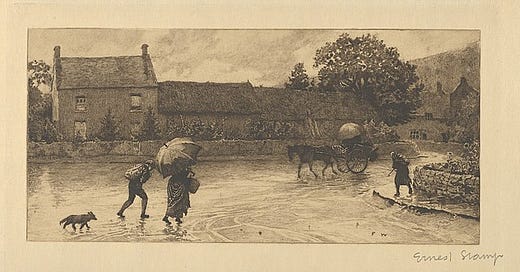



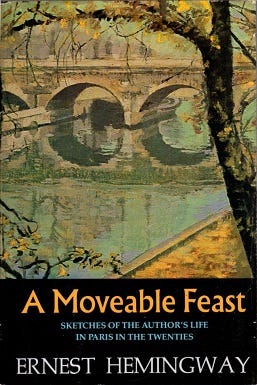
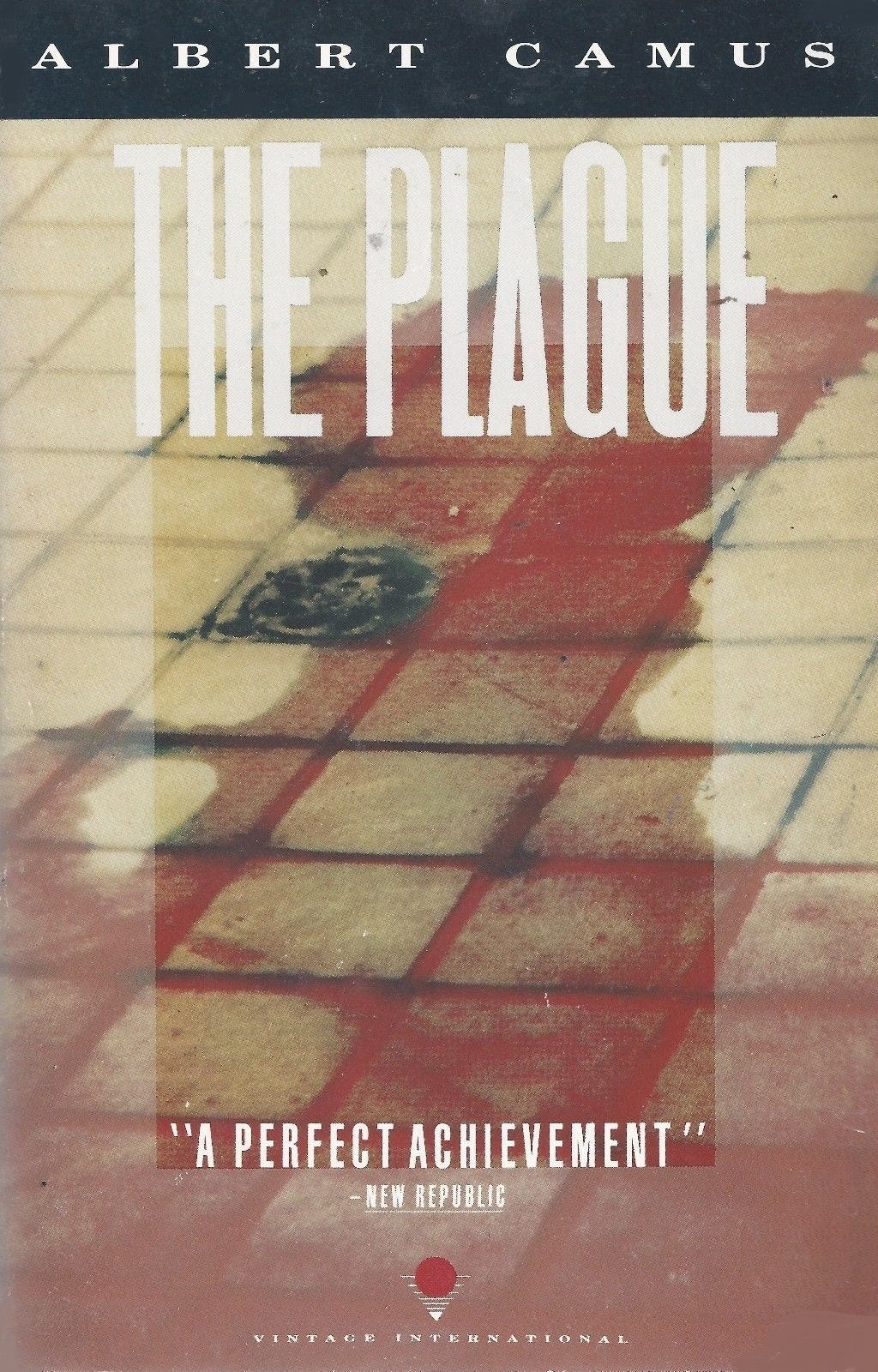
![The Moviegoer: A Novel [Book] The Moviegoer: A Novel [Book]](https://substackcdn.com/image/fetch/$s_!Eu6x!,w_1456,c_limit,f_auto,q_auto:good,fl_progressive:steep/https%3A%2F%2Fsubstack-post-media.s3.amazonaws.com%2Fpublic%2Fimages%2F28e76dea-d915-4ee2-9b86-9424e06d5959_1652x2560.jpeg)
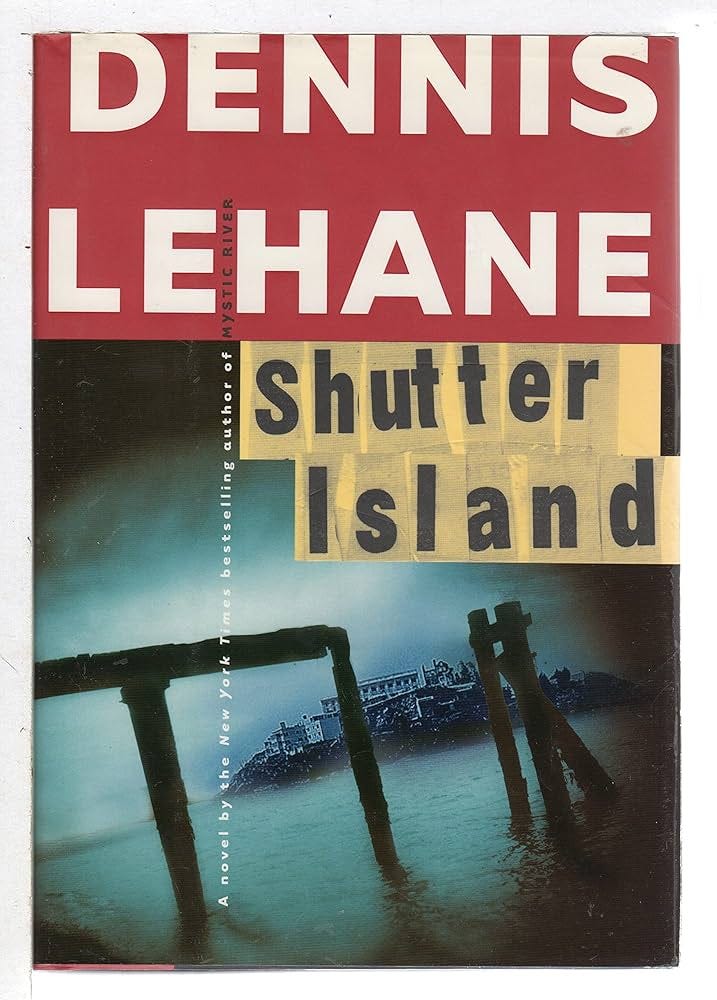

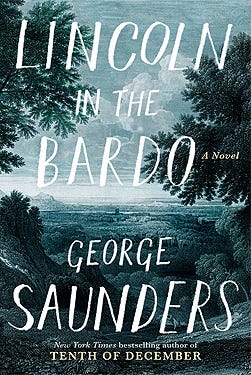
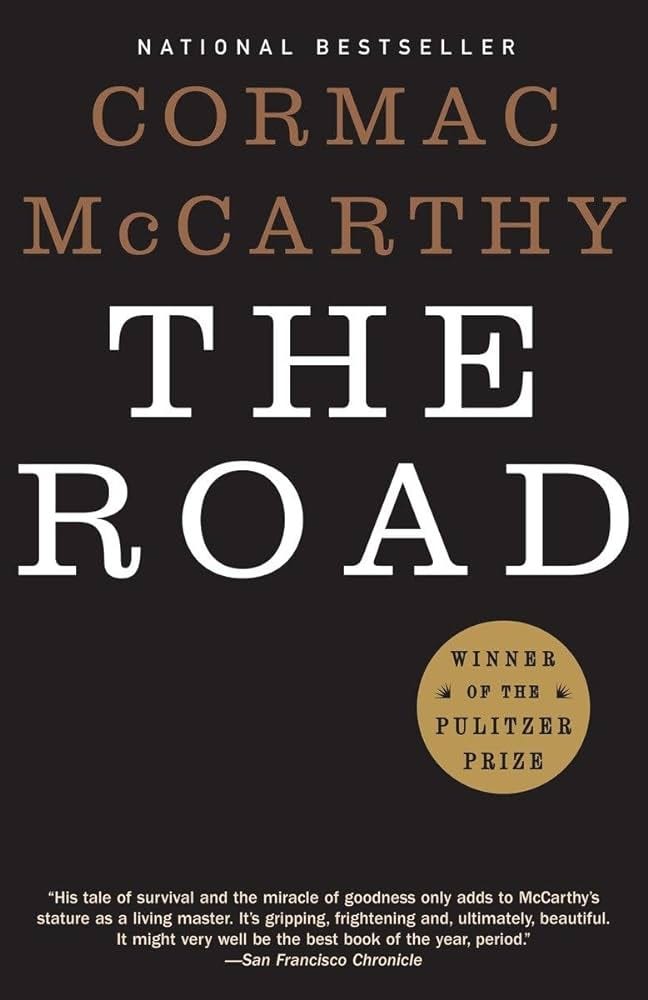
There goes my resolution to Not Spend Money on More Books....
*Adds to my reading list*